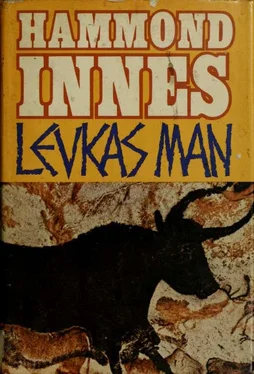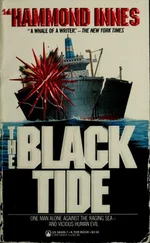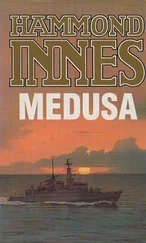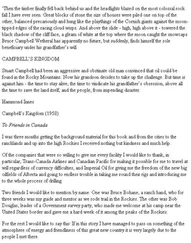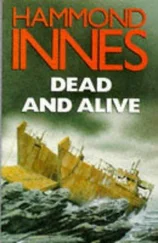Hammond Innes - Levkas man
Здесь есть возможность читать онлайн «Hammond Innes - Levkas man» весь текст электронной книги совершенно бесплатно (целиком полную версию без сокращений). В некоторых случаях можно слушать аудио, скачать через торрент в формате fb2 и присутствует краткое содержание. Жанр: Прочие приключения, на английском языке. Описание произведения, (предисловие) а так же отзывы посетителей доступны на портале библиотеки ЛибКат.
- Название:Levkas man
- Автор:
- Жанр:
- Год:неизвестен
- ISBN:нет данных
- Рейтинг книги:3 / 5. Голосов: 1
-
Избранное:Добавить в избранное
- Отзывы:
-
Ваша оценка:
- 60
- 1
- 2
- 3
- 4
- 5
Levkas man: краткое содержание, описание и аннотация
Предлагаем к чтению аннотацию, описание, краткое содержание или предисловие (зависит от того, что написал сам автор книги «Levkas man»). Если вы не нашли необходимую информацию о книге — напишите в комментариях, мы постараемся отыскать её.
Levkas man — читать онлайн бесплатно полную книгу (весь текст) целиком
Ниже представлен текст книги, разбитый по страницам. Система сохранения места последней прочитанной страницы, позволяет с удобством читать онлайн бесплатно книгу «Levkas man», без необходимости каждый раз заново искать на чём Вы остановились. Поставьте закладку, и сможете в любой момент перейти на страницу, на которой закончили чтение.
Интервал:
Закладка:
It was about ten before I got back to the house, and when I switched the light on in the study, I found the curtains drawn and a note placed carefully on top of my suitcase. It said: Dr. Gilmore is in Amsterdam. He is another "bone" man and he would like to see you. I will bring him to the house at 11 a.m. tomorroic. Please be in. The writing was roimd and feminine. She hadn't bothered to sign it.
I crossed to the desk and read the letter I had glanced at before. Dr. Gilmore's world and the world of Wilhelm Borg were poles apart. I found it difficult to adjust my mind to the fact that here was a doctor of something or other at Cambridge University who seemed greatly excited over a piece of bone the old man had sent him. // you are right and this belongs to Cro-Magnon man, then I don't need to tell you how important it is. The dating puts it earlier than Les Eyzies or subsequent finds. I respect and understand your secrecy, but in view of the importance of this discovery I feel you have no right to keep the location to yourself. I have agreed to attend a conference at The Hague and will be arriving in Amsterdam on Sunday, March 16. .
Now, I was being asked to see him instead, and I wondered what the point was as I carried my suitcase up to my old room.
There I found the bed had been made up ready for me. It seemed an odd gesture in view of the things she had said. The water heater had been switched on, too, so that I was able to have a bath, which I badly needed. Lying there, naked and relaxed, I was amused by the girl's clumsy attempts to involve me. I was also mildly curious, so that after my bath I went back down to the bureau in the study and got the bundle of Cambridge letters from the secret cavity.
The signature was the same untidy scrawl, but they told me little about Dr. Gilmore. They were chiefly answers to scientific queries, all typewritten and highly technical, except one, which was in the Doctor's untidy hand and might almost have been referring to some criminal activity. Whilst I sympathize with you, I cannot, of course, condone. What you have done places you beyond the pale. Whatever you write, whatever you discover from now on, will be suspect. You have affronted the moral rectitude of a luorld that, whilst often confusing truth, believes in it absolutely. However, whilst I cannot obviously defend your conduct in public, I want you to know that I understand and wish that it will make no difference to our long-standing friendship. That was all. Nothing stated, only implied. The notepaper was headed Trinity College, Cambridge, and dated April 21, 1935.
It was a long time ago now, but like the love letters from my mother, it had obviously been put there for greater secrecy. I found some Fuckink geneva in the usual place in the dining room sideboard, and as I sipped the old familiar liquor and browsed through his bookshelves, I wondered what he had done that had brought such a severe reprimand from a man who seemed to have been both tutor and a life-long friend.
The books ranged over everything associated with anthropology, and words and dates, sometimes whole passages, had been underlined; most of them had notes scribbled in the margin. A passage about the behaviour of an unusual insect caught my eye, chiefly because I had actually seen the coral-coloured flower take wing and it took me back to the dim-remembered life in Kenya.
The oblong blossom of this artificial flower is formed by the clustering of moths on a dead tiuig. An example of insect camouflage-yes, but it is something much more. Shake the twig and the moths rise in flight, then after a while they settle again on the twig and for a moment they are just moths of different colours craiuling over each other with no apparent purpose. But purpose there is, for in another moment order has replaced chaos and, suddenly, there is the flower again, the full flower, all coral-so perfect a blaze, so natural a form that humans are fooled into leaning doiun for the scent and birds ignore it in their flighting search for food. But there is more to this wonder yet, for the fiattids have not assumed a natural camouflage; there is, in fact, no real blossom that approximates to the form they take instinctively. They have thought this form up for themselves, creating it in the same way that an abstract painter creates a picture. And if you breed these little insects, you luill find that each batch of eggs produces at least one luith all-green wings, whose place will always be at the tip, several with shades of green tinged with coral, and the rest pure coral. In other words, the whole fantastic hoax is self-perpetuating from the egg to the twig.
For some reason insects and birds had meant more to me in those early years in Kenya than all the big game. Even the long journeys through the bush in the battered old Plymouth were remembered chiefly for the birds around Lake Victoria. The passage was heavily underlined with a date scribbled in the margin. And on the second shelf I found an album of photographs with pictures of caves and digs. One of them, heavily ringed in red, was of a scattering of bones, including the lower jaw and part of a cranium that looked human, laid out in the dirt at the bottom of some pit. Against the picture he had written: Only a hundred miles from Olduvai! The picture was not a very clear one, but further on in the album they became sharper and less faded, as though he had been able to switch to a better camera, and the captions ranged from Africa to Turkey, even Russia.
It seemed strange that he had never been able to communicate his own enthusiasm to me. I could remember his voice, dry and detached, talking about bones and flints and ape-men with long, impossible names, and it had all meant nothing to me, nothing at all. No doubt I was a great disappointment to him, but I couldn't help being the boy I was, and beating me hadn't helped. I could remember those beatings more distinctly than anything he had ever told me-his impatience, that barely concealed sadistic streak.
The books, and the geneva perhaps, made me feel suddenly sad. If he had gone about it differently, our relationship might have been changed. My life, my outlook, my whole behaviour pattern, too. I had finished my drink and was just on the point of going to bed, when my eye was caught by a group of foreign books on the bottom shelf, the dust wrappers still on and the titles curiously anonymous in an unknown alphabet. They contained no marked passages, no notes, but some of the pictures had been reproduced from the photographs in the album. They were, in fact, duplicate copies of two titles published in Russian. And on the same shelf, I found other copies published in Berlin, Prague and Warsaw. The East German edition carried his name in recognizable print-Dr. P. H. Van der Voort. I could find no sign of an English, or even a Dutch edition. He had always disliked the English, but that did not explain why his work only seemed to be recognized by the Iron Curtain countries.
I went to bed then. The wind had died, the rain had stopped. The house was very still as I lay thinking of the last time I had slept in that room, the urgent desire I had had to get away, the wild plans I had made. Now, once again, I had plans to make and it was a long time before I could get to sleep.
The sun was shining when I woke next morning. It was late and by the time I had been out for coffee it was almost eleven. I got back to the house only a few minutes before they arrived. Dr. Gilmore was small, neat and very alert for his age. "So you're Pieter Van der Voort's son." His hand was dry and barely touched mine, but his eyes and his smile had extraordinary warmth.
"Dr. Gilmore is a palaeontologist also," the girl said.
"Which means what exactly?" It was a word I had never really understood.
Dr. Gilmore smiled. "Put crudely, I'm a bone man-an expert on all types of fossils. It derives from the Greek: palaios — old; ontologia-the study of being. I like to think it was because he studied under me that your father specialized in palaeontology."
Читать дальшеИнтервал:
Закладка:
Похожие книги на «Levkas man»
Представляем Вашему вниманию похожие книги на «Levkas man» списком для выбора. Мы отобрали схожую по названию и смыслу литературу в надежде предоставить читателям больше вариантов отыскать новые, интересные, ещё непрочитанные произведения.
Обсуждение, отзывы о книге «Levkas man» и просто собственные мнения читателей. Оставьте ваши комментарии, напишите, что Вы думаете о произведении, его смысле или главных героях. Укажите что конкретно понравилось, а что нет, и почему Вы так считаете.
